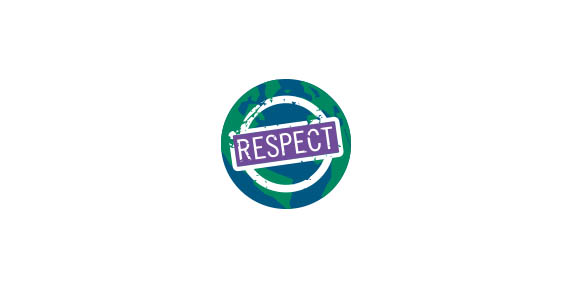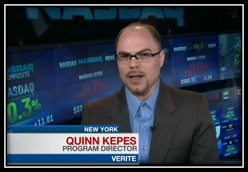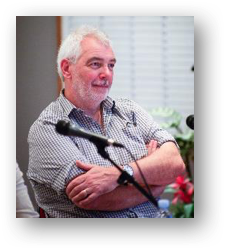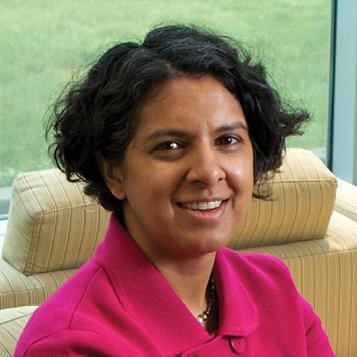




2016 Webinar Speakers

Sandro Pettineo is a Policy Advisor at the International Confederation of Private Employment Services, Ciett. He is responsible for the relations with key international organisations such as the OECD, the ILO the IOM and the EU. Currently, he is working on the implementation of the partnership with the ILO Fair Recruitment Initiative to promote ethical recruitment and fight human trafficking in South Asia and the Middle East. Prior to Ciett, he worked for Motorola, the European Commission, and the Council of the European Union. He holds a Masters’ degree in International Relations from the University of Florence (Italy), and a specialisation in American Studies from Smith College (MA, USA).
(Webinar 2016, Responsible Recruitment vs. Human Trafficking of Migrant Workers)

Clara Pascual de Vargas is a consultant for the Labour Mobility and Human Development (LHD) division at the International Organization for Migration (IOM), based in Geneva. There she provides technical expertise on issues related to ethical labour recruitment and labour exploitation in global supply chains. Prior to joining the IOM, she worked in counter-trafficking for the past six years. Clara primarily worked in the development of tools to help businesses tackle human trafficking and forced labour in their operations and supply chains. In addition, she is a founding member of the first specialised service for trafficked persons in Geneva.
(Webinar 2016, Responsible Recruitment vs. Human Trafficking of Migrant Workers)

James Sinclair is the Co-founder of, and International Advisor to, the FSI Worldwide Group of companies. James is an international lawyer and academic researcher based in London. Alongside his legal practice, he is currently undertaking part-time PhD research at King’s College London, with a thesis entitled “Profitable Ethics: the relationship between the eradication of slavery and enhanced commercial performance”. In 2006, he co-founded FSI Worldwide, a UNGIFT award-winning socially entrepreneurial company, whose initial focus was on protecting the rights of former military personnel working in post-conflict and hostile environments. FSI now operates in nine countries and has protected many thousands of workers across multiple geographies and industry sectors from unlawful exploitation through its ethical recruitment and management systems.
(Webinar 2016, Responsible Recruitment vs. Human Trafficking of Migrant Workers)

Julie Dahlstrom is a Clinical Instructor at Boston University’s Human Trafficking Clinic which was named one of the top 25 most innovative clinics by preLaw magazine in 2014, and a Senior Staff Attorney at Casa Myrna Vazquez where she represents survivors of commercial sexual exploitation. Previously she was the Managing Attorney of the Immigration Legal Assistance Programme at Ascentria Care Alliance. She also co-chairs the Public Service Subcommittee of the Immigration Committee of the Boston Bar Association and was appointed by Governor Deval Patrick to the Massachusetts Human Trafficking Task Force.
(Webinar 2016, Responsible Recruitment vs. Human Trafficking of Migrant Workers)

Quinn Kepes oversees Verité’s annual Emerging Markets Research Program, under which he supervises the work of field researchers in 25 focal countries for the New York City Employees’ Retirement System (NYCERS), manages Verité’s research project for the U.S. Department of Labor on the causal factors of forced labor, as well as the formulation of policy recommendations to combat this phenomenon in seven countries in Latin America, Asia, and Africa. Furthermore, he is the research manager for a Verité project to determine the ways in which Nepalese immigrants are trafficked to India, Israel, Malaysia, the United Arab Emirates, and the United States.
(Webinar 2016, Illicit goods in the supply chain (minerals))

Kristin Wiebe is a Technical Advisor at the Human Trafficking Standards Initiative (HTSI), a project of RESOLVE. She has been developing anti-human trafficking programmes in Europe, Asia and Africa for the past seventeen years. After designing handcrafts for rural women’s cooperatives in Bangladesh with the Mennonite Central Committee, Kristin travelled through Southeast Asia and witnessed human trafficking firsthand. Compelled to action, she pursued a law degree to gain skills to combat trafficking in the US and abroad. In 2000, she lobbied at the UN Commission on Human Rights for attention to the demand side of trafficking. Kristin gained a BA from Bethel University, St. Paul Minnesota in English and Studio Art, and a Juris Doctor from the University of San Francisco, California.
(Webinar 2016, Illicit goods in the supply chain (minerals))

Hubert Lacey III is a Research Advisor at the Human Trafficking Standards Initiative (HTSI), a project of RESOLVE, which builds upon his experience with diverse collection mechanisms, secure data transfer and delivering timely mission-critical information where it matters most: between people. He has been active as a human factors engineer in the technology industry in the civilian sector for over 20 years. During this time, he also served with the armed forces, integrating security, data and communications with front-line units, relief operations and first responders. Hubert managed projects and products from the very first handheld applications in 1996 to data transformation platforms. With AT&T, Hubert was a principal with the small team that created the Sterling product which was sold to IBM for 1.2 billion USD. In addition, in the medical imaging field, he brought the first patient-accessible three-dimensional CT data package to FDA acceptance.
(Webinar 2016, Illicit goods in the supply chain (minerals))

Rob Lederer is the Executive Director at the Electronic Industry Citizenship Coalition (EICC) where he brings over three decades of experience in managing industry associations, helping them to achieve strategic and growth objectives. Mayor of Fairfax, Virginia (USA) for 10 years, he provided leadership and vision to the city. He joined EICC in 2013 and has guided the organisation including doubling the size of the membership, on-boarding of a staff of 16 full-time employees, the opening of an office in Asia, and three years of growing surplus budgets since then. The EICC also houses the Conflict Free Sourcing Initiative, a multi-industry in-region audit programme focussing on Dodd Frank compliance.
(Webinar 2016, Illicit goods in the supply chain (minerals))

Michael Posner is Co-Director at the Center for Business and Human Rights, NYU Stern School of Business, where he is working to launch the first-ever center on business and human rights at a business school. From 2009 to 2013 he serves in the Obama Administration as Assistant Secretary of State for the Bureau of Democracy, Human Rights and Labor at the State Department. From 1978 to 2009 he led Human Rights First, a New York-based human rights advocacy organisation. He earned a J.D. from the University of California, Berkeley Law School (Boalt Hall) in 1975, and a BA with distinction and honors in History from the University of Michigan in 1972.
(Webinar 2016, Illicit goods in the supply chain (minerals))

Roel Nieuwenkamp is the Chair of the OECD Working Party on Responsible Business Conduct, the intergovernmental committee focussed on corporate responsibility, and works on due diligence on forced labour in supply chains. He provides leadership to the unique globally active complaints mechanism of the OECD Guidelines and the National Contact Point system. As Chair he leads the body of 46 governments overseeing the corporate responsibility work of the OECD, including sectoral programmes for the finance, mining, garment, and agricultural sectors. Previously, he was managing director of the International Trade Policy & Economic Governance Department at the Ministry of Foreign Affairs of The Netherlands.
(Webinar 2016, Training and auditing – Lessons learned)

Sanjiv Singh is Senior Trainer (in English and Hindi) and SAI Authorised Representative for the Middle East at Social Accountability International (SAI). He provides training on labour law interpretation and implementation to business sectors ranging from construction, manufacturing and services to trading. He also trains the labour inspectors at the United Arab Emirates’ Ministry of Labour on inspection methodology, social interaction, essential business skills, and health and safety. Coming from a background of 10 years in tea plantation management and having been a leader in promoting corporate social responsibility to businesses and governments in the Middle East, he now specialises in migrant workers’ rights and has been responsible for developing the 5-point social performance measurement tool for the Ministry of Labour, United Arab Emirates.
(Webinar 2016, Training and auditing – Lessons learned)

Rochelle Zaid is the Executive Director of the Social Accountability Accreditation Services (SAAS) and serves as senior administrative staff as liaison to the SAAS Board of Directors and Advisory Committees. Prior to joining the Accreditation Agency as Director in 1999, she was an outsourcing manager with Country Miss Inc. for many years. She was also a project administrator at Eileen Fisher. Whilst she was there she helped develop and implement the social accountability programme, draftes a manual for suppliers, and served as a member of the SA8000 Advisory Board.
(Webinar 2016, Training and auditing – Lessons learned)

Ben Vanpeperstraete is the Supply Chain Coordinator at UNI Global Union, IndustriALL Global Union. He works on labour rights in garment supply and supports the work of UNI and IndustriALL on the Bangladesh Accord on Fire and Building Safety (Bangladesh Accord). He is also a member of the OECD Advisory Group on Responsible Supply Chains in the Textile and Garment Sector, established as part of the OECD’s work on the OECD Guidelines for Multinational Entreprises. His areas of expertise cover Supply Chains, Corporate Social Responsibility, Corporate Social Accountability, Business and Human Rights, and Sustainable Development. He has a degree from Université Libre de Bruxelles and holds a Masters in Sociology.
(Webinar 2016, Training and auditing – Lessons learned)

Chloe Poynton is Principal at Article One Advisors where she advises companies and multilateral organisations on advancing respect for human rights and driving greater social impact. Prior to co-founding Article One, she led BSR’s Europe, Middle East and Africa Human Rights Programme. In that capacity, Chloe travelled to more than 20 countries, helping to support companies in ICT, Healthcare, Travel and Tourism, Financial Services, as well as Extractives. She holds a MA in Public Policy from Princeton University and a BA in International Studies and Anthropology from Macalester College.
(Webinar 2016, Training and auditing – Lessons learned)

Martin Atkin is the Interim Head of Communications at Fairtrade International based in Bonn, Germany. He is also a communications consultant and founder of Funnelweb Media, a communications agency specialising in sustainability, environmental, development and human rights issues. A journalist by background, Martin was the Creative Director of Greenpeace International, Media Director of WWF International and has acted as consultant to MSF, ActionAid, Amnesty International and others.
(Webinar 2016, Consumers in the Global Supply Chain)

Francesco Tramontin is the Director of Public Affairs Europe at Mondelez International, Inc., one of the world’s largest snack companies, where he is responsible to coordinate Mondelez’ external engagement strategy in Europe with a particular focus on Sustainability and Health & Wellness topics. From 2012 to 2013 he worked in Mondelez Europe headquarters in Zürich, Switzerland, as Director for Sustainability, and from 2008 to 2012 he worked in Kraft Foods’ headquarters in Chicago, USA, where he was responsible for Issues Management coordinating the company’s global external positions on sustainability and environmental issues, and managing Kraft Foods regular relationship with NGOs and external partners. He previously worked in EU public/government affairs in Brussels for Cargill, and then Kraft Foods, focusing on environmental, trade and agricultural policy.
(Webinar 2016, Consumers in the Global Supply Chain)

Ayesha Barenblat is the Founder of Remake and a social entrepreneur with a passion for building sustainable supply chains that respect both people and the planet. She founded Remake to use the power of films, visual storytelling and immersive journeys to create a conscious consumer movement. Ayesha led brand engagement at Better Work, a World Bank and United Nations partnership to ensure safe and decent working conditions around the world. Previously, she was head of consumer products at BSR, providing strategic advice to brands (including Levi Strauss and Company, Marks and Spencer, Nike and the Gucci Group) on the design and integration of sustainability into business. She holds a Masters’ degree in Public Policy from the University of California, Berkeley.
(Webinar 2016, Consumers in the Global Supply Chain)

Faris Natour is the Co-founder and Principal of Article One. He is an internationally recognised expert with over 15 years of experience working at the intersection of business and human rights. As Principal of Article One he advises corporate and institutional on human rights strategy and management with the aim of embedding human rights throughout business and institutional operations. In addition, he leads the HUman Rights and Business Initiative at the Centre for Responsible Business, Haas School of Business, UC Berkeley, where he teaches courses on business and human rights, and drives research and collaboration among business and stakeholders to address critical human rights challenges.
(Webinar 2016, Consumers in the Global Supply Chain)

Antonie Fountain is the Managing Director at the Voices of Organisations in Cocoa in Europe (VOICE) Network. He acts as one of the key spokespersons for civil society in cocoa and has been actively advocating for a sustainable cocoa sector for most of a decade. He is also a writer, stage speaker, and a profligate social media enthusiast.
(Webinar 2016, How to mitigate the risk of child labour in the supply chain)

Giji Gya is the Founder and Owner of Downtown Uptown Sàrl Genève. Formerly Head of Asylum, Migration and Counter-Trafficking in Human Beings (THB) programme at the Geneva Centre for Democratic Control of Armed Forces (DCAF) she oversaw four projects on counter-trafficking in Romania and Bulgaria (2012-2018) and edited the DCAF Migration and Security Sector paper series. Her research areas included security sector transformation and social responsibility. She serves as Executive Director of ISIS Europe in Brussel from 2008 to 2011 and was Assistant Director of the Global Policy Forum in New York, and also worked against labour exploitation with Fairwear Australia.
(Webinar 2016, Introduction webinar)

Olivier Laboulle is Programme Manager for Sustainable Supply-ChainManagement at the International Cocoa Initiative. He currently works in Geneva where he collaborates with companies such as Nestlé on systems to monitor and remediate child labour in West African cocoa farms. He worked on sustainability issues, education and livelihoods, predominantly with non-profits, public-private partnerships, and social entreprises in Africa and Europe, as well as the UN. After four years with UNESCO, Olivier moved to South Sudan in 2013, where he set up a social recycling business with a local NGO and the mutlinational entreprise SAB Miller.
(Webinar 2016, How to mitigate the risk of child labour in the supply chain)

Ruth Freedom Pojman is the Deputy Co-Ordinator at the OSCE Office of the Special Representative and Co-Ordinator for Combating Trafficking in Human Beings. She is the lead on the Office’s efforts to prevent human trafficking in supply chains. Prior to joining the OSCE, she worked as the United States Agency for International Development (USAID)’s first Senior Anti-Trafficking Advisor at the Europe and Eurasia Bureau assisting in designing anti-trafficking programmes and strategic approaches, as well as conducting assessments, research and training. She worked in Eurasia developing technical assistance and democracy/human rights programmes, including for the IOM on programmes assisting in the development of migration policy, border control and management, NGO-government cooperation and anti-trafficking in the Kyrgyz Republic and Central Asia. In addition, she worked on public information, raising awareness of refugee, political asylum and tolerance issues for the UNHCR.
(Webinar 2016, Introduction webinar)

Anita Ramasastry is a Roland L. Hjorth Professor of Law and the Director of the Graduate Programme in Sustainable International Development at the University of Washington Law School. She is an expert on business and human rights, including issues of ethical sourcing and supply chains. She is also a member of the WEF Global Agenda COuncil on Human Rights, and serves as an advisor to BSR and the Institute for Human Rights and Business. She is one of the founding editor in chief of the new Business and Human Rights Journal published by Cambridge University and was the Co-chair of the drafting Committee for a new uniform state law on the prevention of and remedies for human trafficking.
(Webinar 2016, Introduction webinar)

Michael Rohwer is a Senior Programme Director at the Electronic Industry Citizenship Coalition (EICC) where he is responsible for environmental and social issues management. Previously, he was the Conflict-Free Sourcing Initiative Programme Director at EICC, and before that he serves in the U.S. Environmental Protection Agency. He is an attorney and holds a Masters’ degree in environmental law and policy from Vermont Law School, and speaks English and Mandarin Chinese.
(Webinar 2016, Illicit goods in the supply chain (minerals))

Pilar Velasquez is an International Relations Officer in the Office of Child Labor, Forced Labor and Human Trafficking and the International Labor Affairs Bureau in the U.S. Department of Labor. Pilar oversees projects to address child labour and forced labour in multiple countries, focusing on mining issues. She holds a BA in political science from the University of Los Andes in Colombia and a MA from the American University in Washington D.C.
(Webinar 2016, How to mitigate the risk of child labour in the supply chain)

